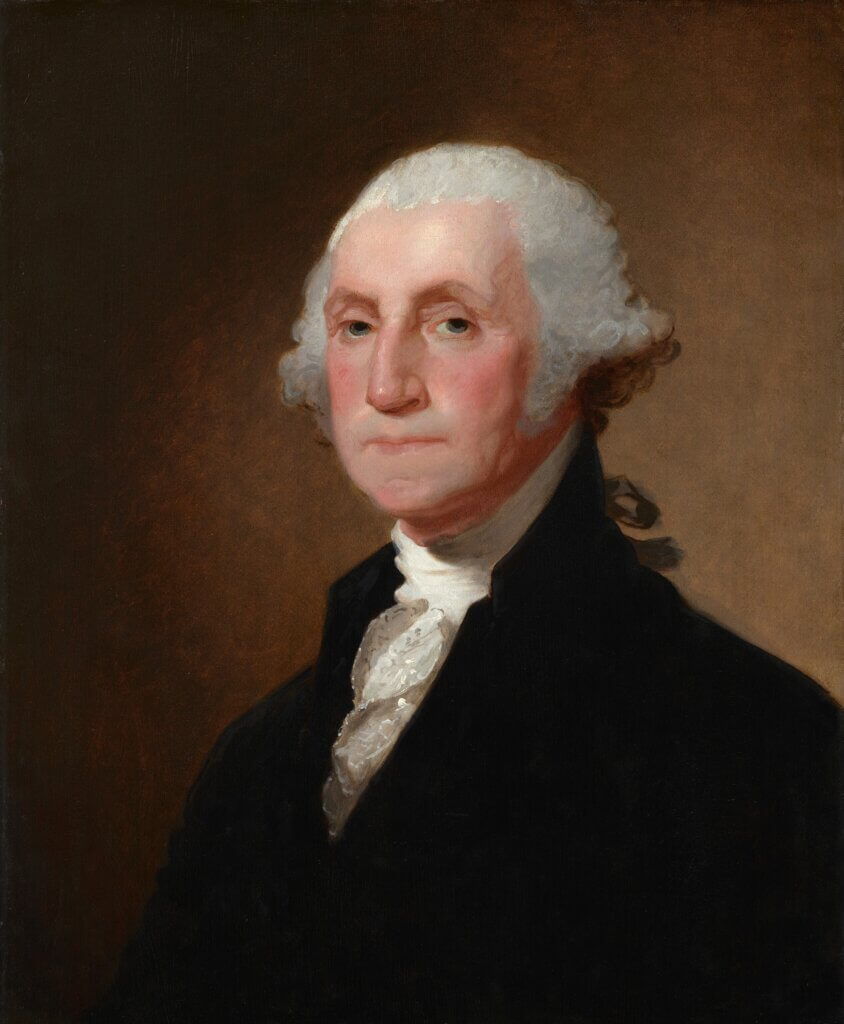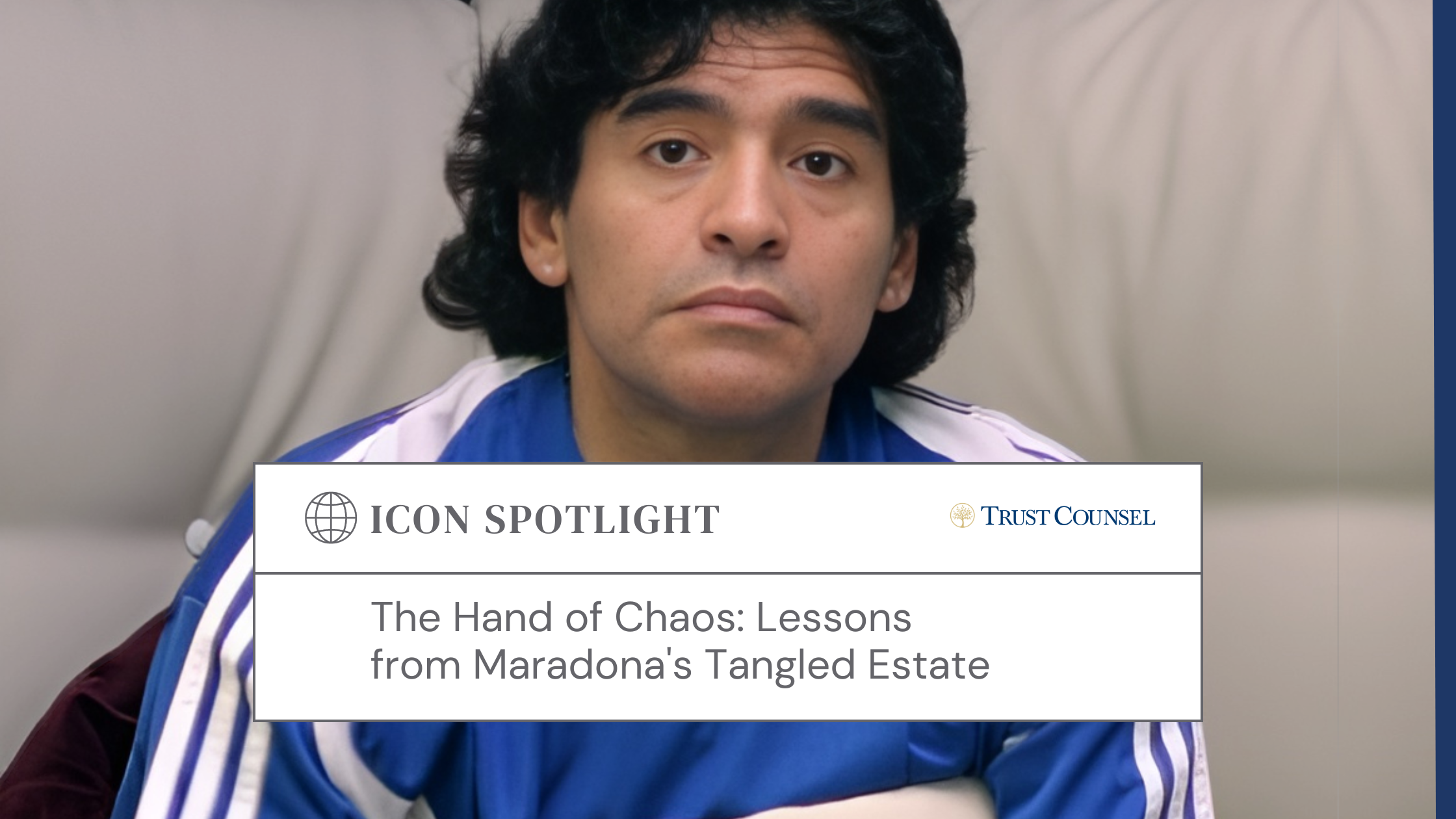As we near the fourth of July and continue to stock up on hotdogs, fireworks and ice-cold beer, here at Trust Counsel we thought we should add a dash of quirky celebration to our Independence Day festivities. Why not honor the founding father himself, George Washington, in a uniquely entertaining way—by diving headfirst into the realm of his estate planning. So, grab your red, white and blue themed swim wear and your nearest powdered wig as we channel our inner founding fathers and embark on this presidentially exquisite estate planning journey.
The Drama Unfolds: George Washington’s Last Will and Testament
On December 14th, 1799, our founding father and first president of the United states at the ripe age of 67 in a state of illness turns to his beloved wife, Martha, and requests not one, but two hand-drafted versions of his will. After a thorough review, he dramatically tosses one of them into the fire, entrusting Martha with the surviving document. Fast forward a few months, and there it is—a remarkable piece of history known as George Washington’s Last Will and Testament, completed on July 9th, 1799, just six months before his passing. The best part? He crafted this masterpiece all by himself during his “leisure hours”, without the help of legal counsel.
The Curious Case of Holographic Wills
Now, let’s dive into the fascinating details. This extraordinary handwritten document, known as a holographic will (fancy term, right?), was presented for probate to the Fairfax County Court within a month of Washington’s unfortunate death. Shortly thereafter, it was printed in Alexandria and circulated throughout the country in the form of pamphlets. Interestingly, holographic wills don’t hold much weight these days in most states, but here’s a fun fact: Arizona is one of the rare exceptions where handwritten wills are still legally recognized.
Executor Extravaganza: Washington’s Trusted Seven
So, who did Washington entrust with the task of executing his final wishes? He handpicked seven individuals to serve as executors of his Last Will and Testament, including his loving wife, his wife’s grandson, and five of his nephews. Now, hold on to your hats because the probate process took quite a while. Although the will was submitted for probate on January 10, 1800, the court-appointed appraisal of assets didn’t see the light of day until 1810. And like most legal situations ended up being long and dreary as the estate was officially closed in June 21, 1847, Talk about patience!
Unveiling Washington’s Heart: A Will Beyond Property and Assets
In common American fashion Washingtons Last will and testament was very different from what most would compose of. Washington’s Last Will and Testament goes beyond the usual breakdown of property, and assets. It gives us a remarkable glimpse into the man’s life, beliefs, and affections and his love for those around him. Instead of following the typical widow’s portion, which was customary back then, he insisted that his “dearly beloved wife Martha” inherit almost all his property and the sweet profits that came with it. On top of that, he generously forgave the debts owed to him by family members and even set aside stocks to fund the education of orphans and support the prestigious Washington and Lee University.
Freedom and Legacy: Washington’s Progressive Stance on Slavery
Let’s not forget about Washington’s progressive stance on slavery. In a move ahead of his time, he made it clear in his will that his slaves should be freed upon Martha’s death. Out of the 317 slaves at Mount Vernon in 1799, a staggering 123 individuals were owned by Washington and were destined for freedom. However, here’s tf: these conditions didn’t apply to all the slaves. When Martha’s first husband, Daniel Parke Custis, passed away without a will, she received a life interest in one-third of his estate, including his slaves. The other two-thirds went to their children. And sadly, neither George nor Martha had the legal power to free these dower slaves. Upon her death, they would revert to the Custis estate and be divided among her grandchildren. History can be complicated, can’t it?
Washington’s Attention to Detail: A Masterpiece of Estate Planning
Now, let’s give a shoutout to Washington for his meticulous attention to detail. He didn’t leave anything to chance, and that includes preventing any potential family feuds over his testamentary intentions. To ensure smooth sailing, he included an arbitration clause in his Last Will and Testament. It basically said, “Hey, folks, let’s hope no disputes arise, but if they do, let’s settle them in a civilized manner.” Washington’s genius plan involved selecting three impartial and intelligent individuals known for their probity and good understanding. Each disputant would choose one arbitrator, and those two would then choose a third. These three wise souls would have the power to decide what Washington truly meant, without being bound by strict legalities or fancy jargon. And get this—they had the authority of the Supreme Court of the United States!
Lessons from Washington’s Estate Planning Adventure
But what can we learn from Washington’s incredible estate planning journey? Well, first and foremost, it’s never too early or too late to plan for the future. Whether you’re the first president of the United States or just an everyday citizen, having a solid estate plan in place is essential. It ensures that your wishes are carried out, your loved ones are taken care of, and potential conflicts are avoided.
Plus, who knows? Maybe one day, your holographic will could become a piece of historical significance. Talk about leaving a lasting legacy!
So, my friends, let George Washington’s estate planning adventure inspire you. Take the time to craft a well-thought-out plan, consult with professionals (unlike Washington, who did it all solo), and ensure that your final wishes reflect your values and aspirations. And remember, while holographic wills may not be all the rage anymore, there’s a place for fun and creativity within the realm of estate planning. Let your personality shine through And secure your legacy!





